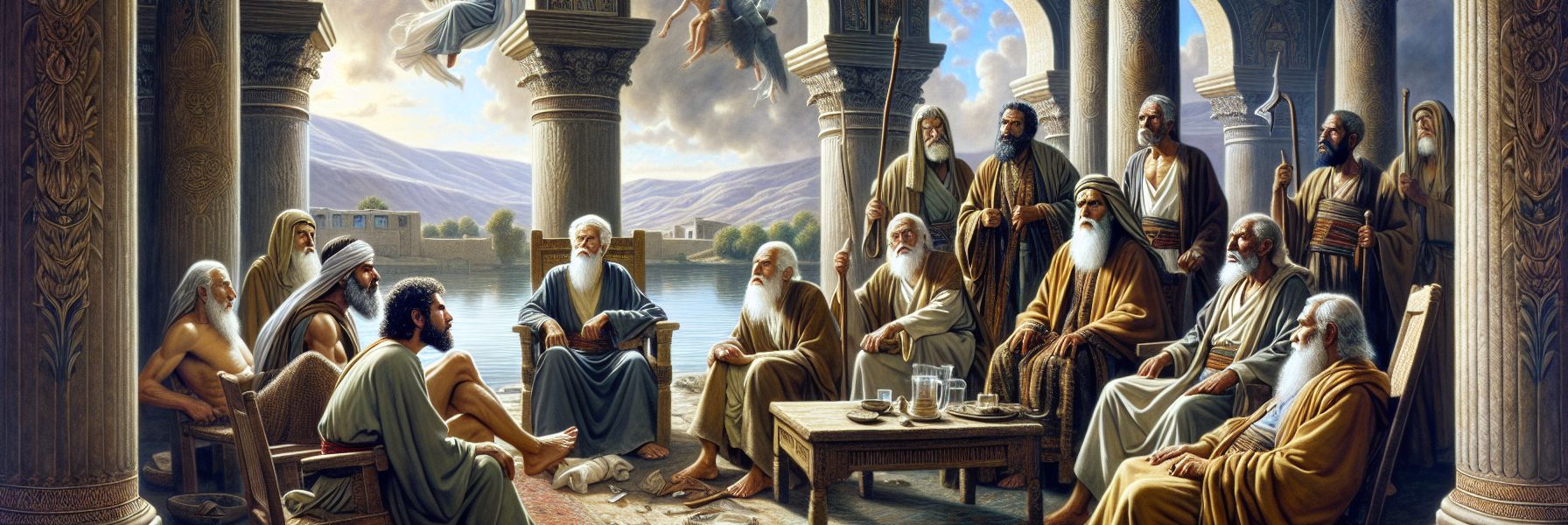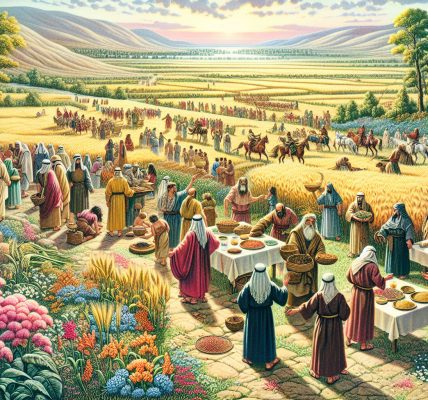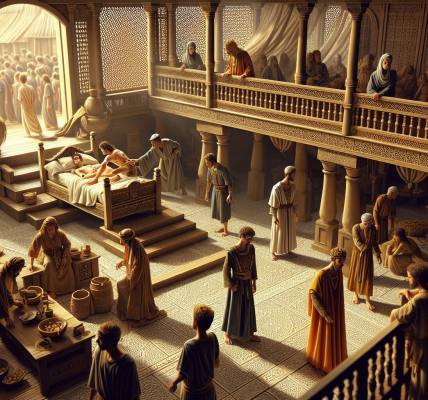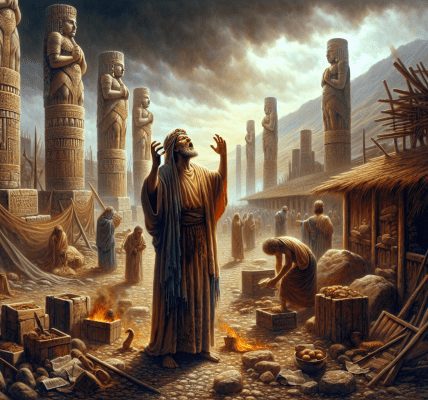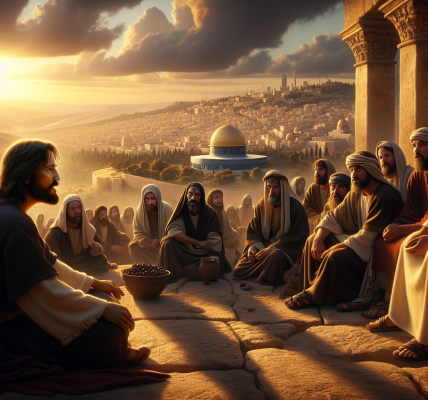**The Divine Judgment: A Vision of Ezekiel**
In the sixth year of King Jehoiachin’s exile, in the fifth month, on the tenth day, the prophet Ezekiel sat among the elders of Judah in his house by the Kebar River. The weight of the Lord’s presence pressed upon him, and his spirit trembled as visions of the Almighty unfolded before his eyes.
Suddenly, a thunderous voice echoed from above the expanse over the heads of the cherubim, calling out with terrible clarity: *”Bring near those who are appointed to execute judgment upon the city!”*
Ezekiel lifted his gaze and beheld six men approaching from the direction of the upper gate, which faces north. Each carried a deadly weapon in his hand. Among them was a seventh man, clothed in linen, with a writing kit at his side. They stood beside the bronze altar, their faces like flint, unyielding and fierce.
The glory of the God of Israel, which had departed from the cherubim where it rested, now rose above the threshold of the temple. The Lord called to the man dressed in linen, whose garments gleamed like purity itself, and commanded him: *”Go throughout the city of Jerusalem and put a mark on the foreheads of those who sigh and groan over all the abominations that are committed in it.”*
The man bowed in obedience and departed, his steps swift and sure. Ezekiel watched as he moved through the streets, his inkhorn in hand, marking the faithful—those whose hearts still clung to righteousness, who wept in secret for the sins of their people. The mark was a sign of divine protection, a seal of mercy amidst the coming storm.
Then the Lord spoke to the six executioners with a voice like rolling thunder: *”Pass through the city after him and strike. Show no pity, spare no one. Kill old men and young women, little children and mothers—but do not touch anyone who bears the mark. Begin at my sanctuary.”*
At these words, Ezekiel’s heart shuddered. The judgment would begin with the elders, the very leaders who had led the people into idolatry and corruption. The executioners raised their weapons—swords gleaming like lightning, clubs heavy with wrath—and moved forward.
The sound of their footsteps was like the march of doom. They entered the temple courts, and before the eyes of the prophet, they began their dreadful work. The elders, who had once stood in the holy place offering incense to idols, now fell under the blade of divine justice. Their cries filled the air, but there was no escape. The altar, once defiled by their sins, was now stained with their blood.
From the sanctuary, the slaughter spread outward—through the streets, the marketplaces, the homes. The city that had once been called holy was now a place of carnage. Ezekiel covered his face, but the Lord would not let him turn away. *”Look, son of man,”* the voice commanded. *”See what becomes of those who forsake me.”*
Bodies lay in heaps, the stench of death rising like a foul incense. Yet among the fallen, there were those who stood unharmed—marked on their foreheads, their lives preserved by the mercy of the One who judges justly.
When the slaughter was complete, the man clothed in linen returned and stood before the Lord, his task fulfilled. *”I have done as you commanded,”* he declared.
Ezekiel fell to his knees, his soul torn between grief and awe. The Lord had shown him the terrible cost of rebellion, yet also the unyielding truth of His justice. The city would be purified—not by the hands of Babylon, but by the decree of Heaven.
And in that moment, the prophet understood: the Lord does not delight in the death of the wicked, but neither will He tolerate sin forever. The mark of mercy had been given to the faithful, but for the unrepentant, only the sword remained.
The vision faded, but its lesson burned in Ezekiel’s heart like an unquenchable fire.
